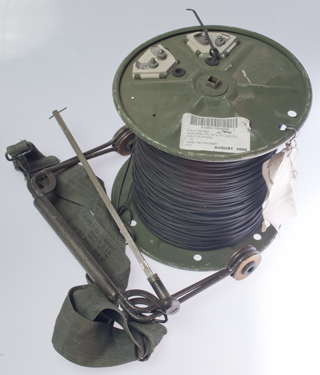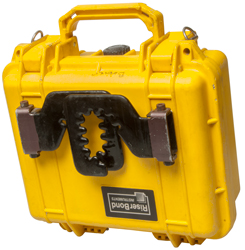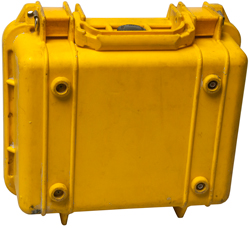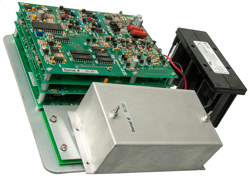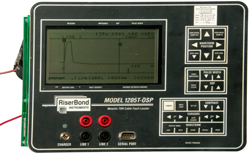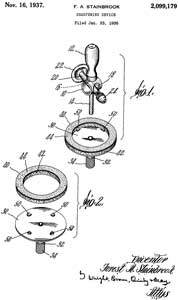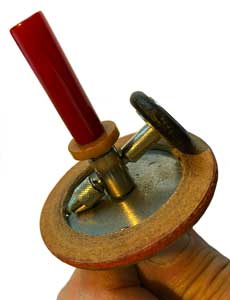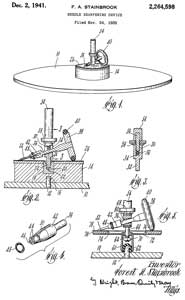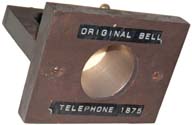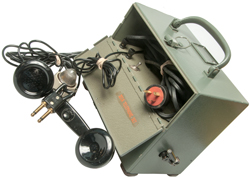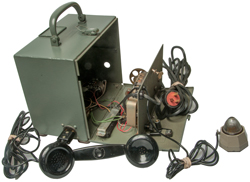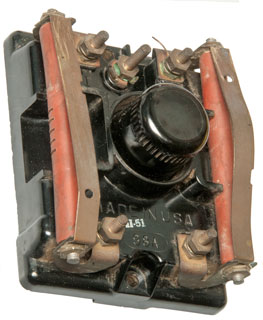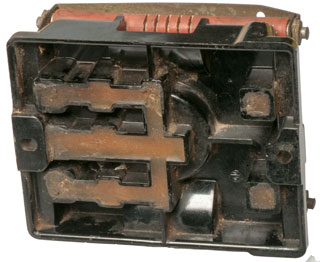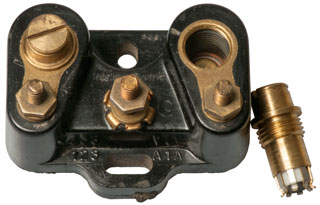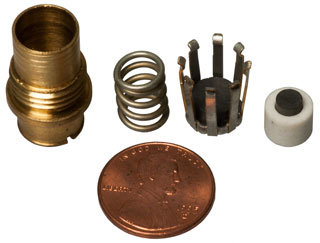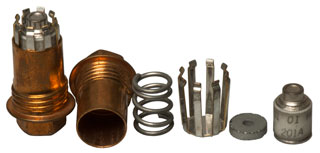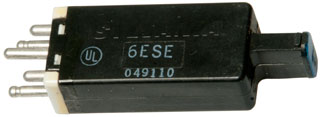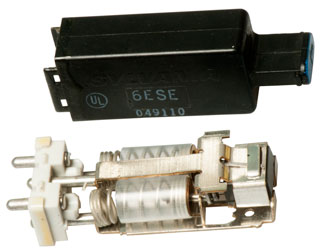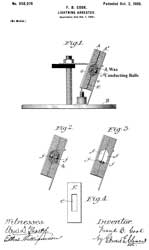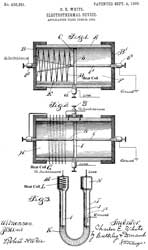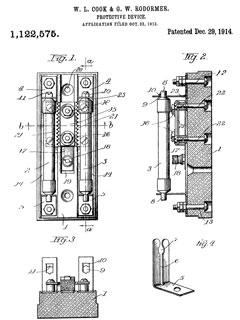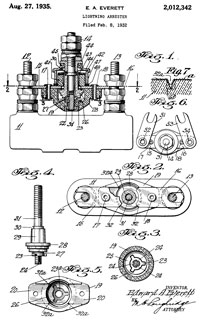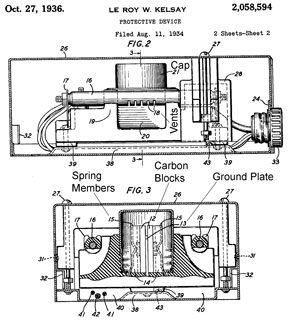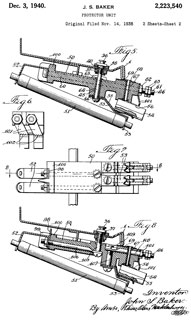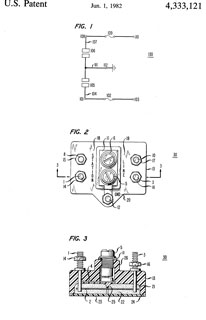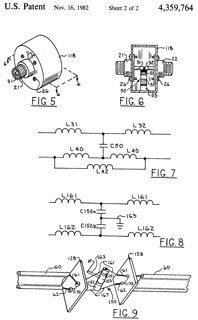In ALL of the following solutions it's mandatory that the frequency band of the added equipment match the frequency band of the cell service provider. Modern cell phones can work on different frequency bands automatically selecting the correct one. The service provider should be able to tell you what frequency band your home location would use.
Go to Wireless Advisor and enter your ZIP code then pick your service provider from the list. In most cases there's only one choice for frequency from one provider, but there are cases whee one provider has two frequencies. For example my local Verizon shows:
<>
There are service modes for the cell phone that give you more information on receive signal strength and transmit power that are helpful when working with external antennas. The antenna provider can probably tell you how to access the service mode for your phone, or Google hacking cell phone "service code" and the model of your phone.
Outside Antenna Connected to Cell phone Antenna Jack
Some people have had success using a Wilson outside Cell Antenna. This is a good solution if the problem is caused by the building construction (what amounts to aluminum foil is wrapped around the house) shielding the signal. If you get a good signal outside but not inside then this has a good change of working. The frequencies for cell phones range from 800 MHz to a little over 2,000 MHz and in this range coax has loss, both reducing the transmitted power and adding noise to the received signal. The smaller in diameter the coax the more lossy. So using an extension on the Wilson coax to get it higher may or may not do any good depending on how long an extension and what size coax is used.But when the signal is also weak outside then a higher gain type antenna up high is needed. One option is a flat plate gain antenna fed with large coax and then a short pigtail of small coax to the cell phone so you don't try to bend the very stiff large coax. It's an improved version of the Wilson omni directional system and may be good for one or two bars of improvement.
Booster
Another option is to add a two way amplifier at the antenna and still connect to the cell phone using the External Antenna Jack on the cell phone. This is a good solution, but somewhat restrictive in that you must use the cell phone only where the connection is located. The quality of the connection with this method and the Intelligent Repeater will be about the same if the outside antennas are about the same. The coax loss is not as important in a booster system since the amplifier at the antenna makes up for the losses.Wilson sells a number of booster amps, some of which can be used with an inside antenna to make a booster.
Classical Repeater
The idea is to have a two way amplifier at the top of a tower or chimney along with a gain type antenna aimed at the cell site. The amplifier boosts the transmitted signal from the cell phone to make up for the loss in the coax cable. On receive the amplifier overcomes the noise that the coax would add if the receive amplifier was not there. Inside there's a passive antenna that feeds signals to and from the cell phone. You can buy this type of system for a few hundred dollars. The problem is that the outdoor antenna must be pointing in the opposite direction from the indoor antenna. If for example the indoor antenna was pointed directly towards the outdoor antenna the system would go into oscillation. That would not only make it unusable but would also very much upset the local cell company because it would take down one of their channels. So this type of system requires a balance between gain and relative antenna positions.Some of the "Indoor Repeater" systems have the amplifier inside and a passive antenna outside. This is not a very good approach because the coax losses are all working aginst you. On receive the coax loss adds to the noise and on transmit the coax loss reduces the transmitted signal. Much better to have the two way amplifier at the outside antenna.
JD Teck sells the Indoor Repeaters
Wilson (2016 now called Weboost) has a number of Classical Repeater systems. The 801245 (no longer available) is a dual band amplifier, outside & inside antennas and coax are additional. The amplifier is not weatherproof and so needs to be in a weatherproof container if outside, or mounted inside as close as possible to there the coax comes indoors.
Wilson offers various types of coax cables. RG-174 which is about 1/10" diameter and very flexible but has a lot of loss. RG-58 which is a little better than RG-174 but still way too lossy to use for more than a few feet. An equivalent to Belden 9913 which only comes with a type-N male connector that's 3/4" diameter. 9913 is much too stiff to connect to the phone which is why shorter pigtails of RG-58 or RG-174 cables are offered. Typically you also need coax adapters. Most cables that have a type-N connector use a male so to connect two cables, like a pigtail to a 9913 where they both have male connectors you need a double type-N female also called a type-N-barrel. It's best to make a diagram showing each part of the system and what connectors it has and what adapters you need. It's a little too late when you're at the top of a latter and the coax doesn't mate to the antenna.
zBoost - has the signal booster (indoor reoeater) that Radio Shack sells for $300 to $1000 (but you might find one on sale). The installation for the zBoost starts with just the indoor amplifier box. When it's powered AND your cell phone has at least a bar or two of signal (to be sure you phone is on the correct frequency) you place a call and if the amplifier green LED lights then you know you have the correct band repeater. If not you have saved unpacking the rest making it easier to return for the correct band.
SpotWave Z1900 for the 1900 MHz band
 |
 |
|
| Cell
phone on my office desk no repeater = no signal. |
Outdoor
Z1900 |
Cell phone on my office desk with repeater = two bars in center. |
Cell to Wired Adapter
There are adapters designed for locations where you have a strong cell signal inside your house that have a cradle that matches a specific model(s) of cell phone, gets power from a wall wart and connects to the house internal (NOT external) phone wires. Then you can use regular phones anywhere in the house through the cell phone. Using one of these at the "hot spot" in your house would be an improvement over needing to stay at the hot spot during your call. The indoor phone could be a cordless model allowing freedom in movement while on what amounts to a cell phone call. Some models are:CellSocket, Dock-N-Talk,
Intelligent Repeater
The first Spotwave patent is titled "Intelligent gain control in an on-frequency repeater". They add a modulation to the incoming cell signal that's fed to the indoor unit allowing the outdoor unit to detect if it's receiving any signal from the indoor antenna and if it is to turn down the gain. When the indoor antenna is located in such a way that no signal is getting back to the outdoor unit the gain is at maximum. There is are LEDs on the indoor and outdoor units to help when aiming them. Since they have good control of the gain you can use common 75 Ohm TV coax between the two units. I don't yet have one of these systems, but it looks the best to me. Sure wish they had one for WiFi.The cost of the Intelligent Repeater may be considerably lower than for a Classical Repeater or Booster amp.
6889033 Intelligent gain control in an on-frequency repeater, Spotwave
7088953 Coverage area signature in an on-frequency repeater, Spotwave
Blue Tooth Headset
If you have a Blue Tooth headset you can relocate the phone to a higher place. For example instead of putting the phone in front of you on a desk place it on the top of a close by bookcase or a window sill facing the cell tower. This might get you an extra bar of signal strength.Sony Ericsson K800 Status Bar Icons
Most of these have to do with the Profile in use (Normal, Meeting, Car, Outdoors, Handsfree, Home, Office) or Keylock or Silent Ring, or Battery status.The very left icon combines three signal strength bar graphs. The upper one, the bottom one and one the fills inbetween those two.
If you know how to read the singnal strength icon let me know.
There are two signal strength measures shown as 1 and 2. What do they mean?
(3) Musical Note with Red line through it = no ring tone, vibration mode
(4) Two people shaking hands - Meeting Profile (from standby press top button to bring up Profile select menu)
(5) Battery Status - shown fully charged.
The K800 manual on page 14 has Chinese Input information and the manual has no information about the status icons.
The K800i manual on page 14 has status icon information, but it does not cover or explain (1), (2), (3), (4) so is not much help here.
The Profiles available are:
Normal: no icon
Meeting: two people shaking hands (4) above
In Car: car icon
Outdoors: tree icon,
Handsfree: phone &2 ear buds icon -
Home: house icon -
Office: two buildings icon -
Options:
Silent Ring: Musical note with red bar (3) above
Keylock" key icon


